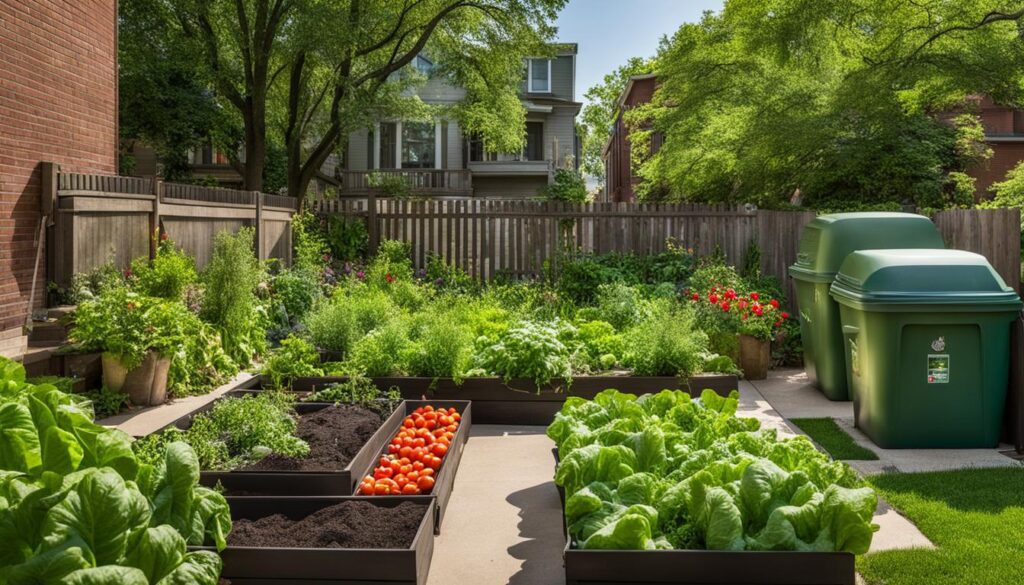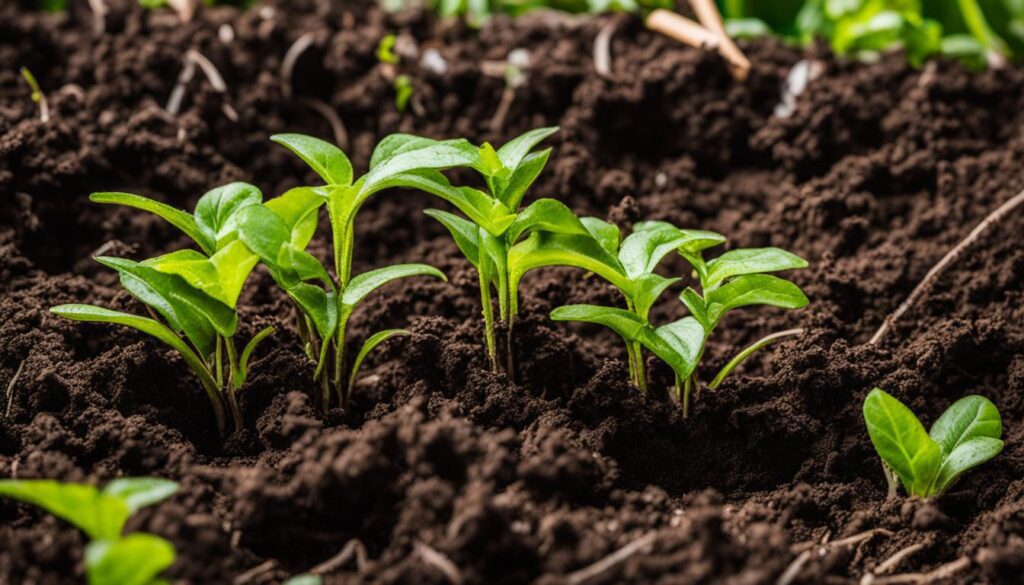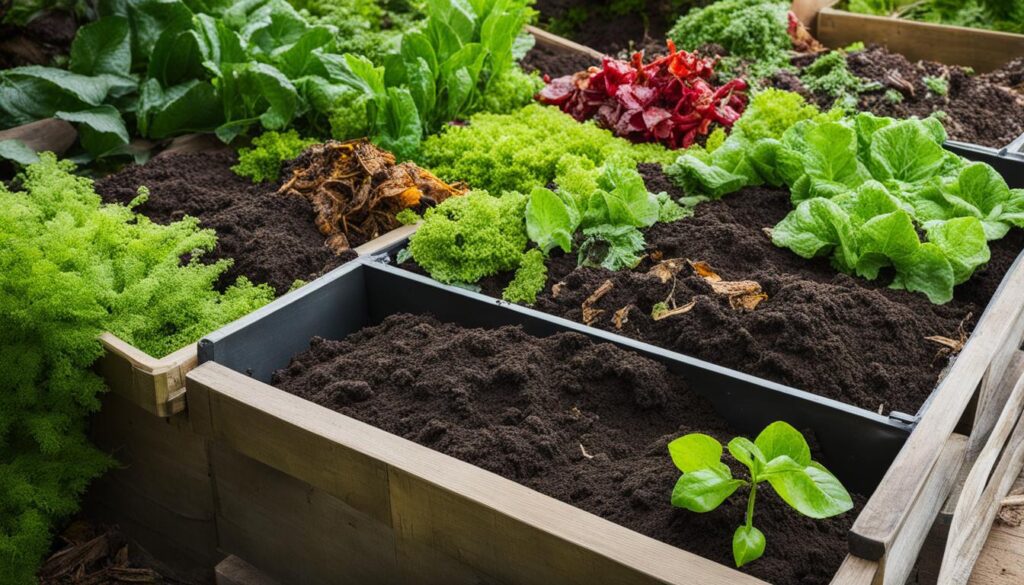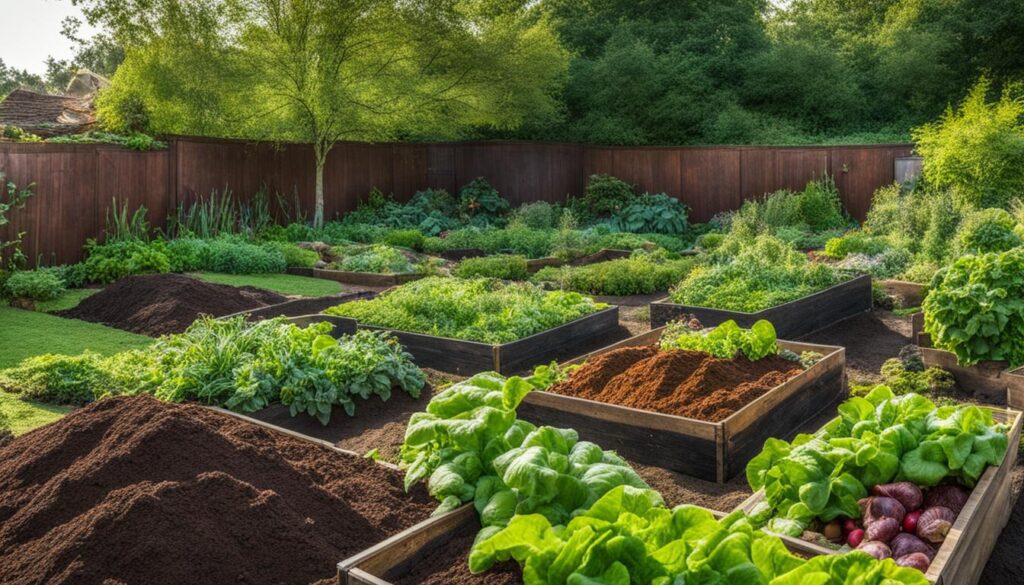Waste Not Compost is revolutionizing sustainable waste management with their innovative approach to organic waste management. With their cutting-edge composting techniques and waste reduction strategies, they are leading the way in creating a greener, more environmentally friendly future.
Established in 2015, Waste Not Compost began as a small initiative driven by a child’s desire to make a difference. Today, it has grown to become Chicago’s premier compost collection provider, offering zero-emissions compost services for homes, businesses, and events. Their commitment to sustainability is unparalleled, operating a 100% electric fleet to ensure that composting is both eco-friendly and efficient.
Composting is a natural process that transforms organic material into nutrient-rich compost. This compost can be used as a soil amendment, providing countless benefits for the environment and our communities. By reducing waste in landfills, enriching the soil, and minimizing the need for fertilizers and pesticides, composting plays a vital role in waste management and environmental sustainability.
Key Takeaways:
- Waste Not Compost is the nation’s leading compost collection service, offering zero-emissions solutions for homes, businesses, and events.
- Their 100% electric fleet ensures sustainable composting practices without compromising efficiency.
- Composting reduces waste in landfills, enriches soil, and minimizes the need for harmful chemicals.
- Waste Not Compost provides convenient residential compost services in Chicago and surrounding suburbs.
- Composting at home helps divert organic waste, create nutrient-rich compost, and promote sustainable gardening practices.
Waste Not Compost Residential Service in Chicago
Waste Not Compost offers a convenient residential compost service in Chicago and the surrounding suburbs. They provide two flexible options for composting at home, either weekly or biweekly service. With the weekly service, a 5-gallon bucket is swapped every week with Waste Not Compost’s fully electric vehicles. This service includes additional benefits such as access to the WasteNot shop for sustainable home goods, a member portal to manage and skip service, diversion metrics updates, and access to finished compost twice a year. The biweekly service offers the same features but with a bucket swap every other week.
Composting at home is an effective way to reduce waste, divert organic materials from landfills, and produce nutrient-rich compost for your garden. Waste Not Compost’s residential service makes it easy for you to contribute to a more sustainable environment while enjoying the benefits of composting. By participating in their residential compost service, you are actively reducing waste in landfills and enriching the soil with valuable nutrients.
If you are in the Chicago area and want to start composting at home, Waste Not Compost is the ideal partner. With their reliable residential service, they make composting accessible and convenient for everyone. Join Waste Not Compost today and be a part of the movement towards sustainable waste management and organic waste reduction.

How to Compost with Waste Not Compost
Composting with Waste Not Compost is a simple and effective way to reduce waste and contribute to environmental sustainability. Here are some tips on how to compost with Waste Not Compost:
- Sign up for the service: Begin by signing up for Waste Not Compost’s compost collection service. They will provide you with a 5-gallon bucket to collect your compostable waste.
- Know what to compost: Waste Not Compost accepts a variety of materials for composting, including fruit and vegetable scraps, tea, coffee grounds, plant prunings, leaves, and grass cuttings. However, it is important to avoid composting diseased leaves and plants.
- Understand the difference between biodegradable and compostable: Biodegradable materials break down naturally over time, but they may not necessarily turn into nutrient-rich compost. Compostable materials, on the other hand, are designed to break down into compost. Waste Not Compost provides guidelines on what can and cannot be composted to ensure the best results.
- Composting process: To compost effectively, place the compostable items in a bin or pile with good air flow. Keep the compost moist, and add more browns (such as leaves, brown paper, and grass clippings) to balance out the greens (such as fruit and vegetable scraps).
- Manage your compost: As the volume of compost material increases, consider starting a new pile and let the old pile finish composting before using it in your garden or soil.
By following these simple steps, you can easily compost with Waste Not Compost and contribute to a more sustainable future.

“Composting is nature’s way of recycling organic waste into nutrient-rich compost, which enriches the soil and reduces the need for chemical fertilizers.” – Waste Not Compost
The Environmental Benefits of Composting
Composting is not only a sustainable waste management practice but also offers numerous environmental benefits. By composting organic waste instead of sending it to landfills, we can significantly reduce the amount of waste that ends up in these facilities. This, in turn, helps to minimize the associated costs and carbon emissions linked to waste hauling and processing.
One of the key environmental benefits of composting is its ability to enrich the soil with essential nutrients. When compost is added to soil, it enhances its fertility and structure, reducing the need for chemical fertilizers and pesticides. This reduction in reliance on synthetic products helps to mitigate the environmental impact associated with their production and transportation, including the consumption of fossil fuels.
Composting also plays a vital role in soil conservation. The organic matter present in compost improves the soil’s ability to retain moisture, reducing the risk of erosion and runoff. Additionally, compost can help suppress plant diseases and pests, leading to healthier plants without the need for harmful chemical interventions.
| Environmental Benefits of Composting | |
|---|---|
| Reduces waste in landfills | Minimizes costs and carbon emissions associated with waste hauling and processing |
| Enriches soil with nutrients | Reduces the need for chemical fertilizers and pesticides |
| Improves soil moisture retention | Prevents erosion and reduces runoff |
| Suppresses plant diseases and pests | Reduces reliance on harmful chemical interventions |
Another significant environmental benefit of composting is its capacity to sequester carbon and reduce greenhouse gas emissions. When organic waste decomposes in landfills, it releases methane, a potent greenhouse gas. By diverting this waste to composting facilities, we can help capture and store carbon in the form of stable organic matter.
By actively participating in composting practices, individuals can make a substantial contribution to waste reduction strategies and environmental sustainability. Whether it’s composting at home or supporting compost collection services like Waste Not Compost, every effort counts towards a greener future.

Waste Not Compost Expansion and Advocacy
Waste Not Compost is committed to not only providing sustainable waste management solutions but also advocating for environmental sustainability. As a company dedicated to making a positive impact on the environment, Waste Not Compost is continuously expanding its services to reach more communities. If residential composting is not currently available in your area, you can request expansion through their website. By doing so, you can contribute to reducing waste and promoting sustainable waste management practices in your community.
But Waste Not Compost’s commitment to the environment doesn’t stop there. They actively engage with student organizations and participate in projects to promote sustainability. By teaching and encouraging sustainable behaviors such as composting, Waste Not Compost aims to create conversations that highlight the importance of waste reduction and composting practices. Through their expansion and advocacy efforts, Waste Not Compost aims to inspire individuals and communities to take action for a healthier and more sustainable future.
Advocacy for Sustainable Waste Management
Waste Not Compost believes that sustainable waste management is crucial for the well-being of our planet. By composting organic waste, we can significantly reduce waste in landfills and minimize greenhouse gas emissions associated with traditional waste disposal methods. Composting also enriches the soil, reducing the need for chemical fertilizers and pesticides, and promoting healthier plant growth. It is a simple yet effective way to contribute to a more sustainable environment.
| Environmental Benefits of Composting | Waste Reduction Strategies |
|---|---|
| Reduces waste in landfills | Minimizes carbon emissions associated with waste disposal |
| Enriches soil with nutrients | Reduces the need for chemical fertilizers |
| Improves soil moisture retention | Promotes healthier plant growth |
| Prevents erosion and reduces runoff | Contributes to overall waste reduction efforts |
Composting is not just a simple waste management practice; it is a sustainable solution that benefits both the environment and our communities. Waste Not Compost’s expansion and advocacy initiatives aim to empower individuals and organizations to embrace composting as a way to reduce waste, promote environmental sustainability, and create a healthier future for all.

Experience the Rewards of Waste Not Compost Today
Composting with Waste Not Compost offers you an easy and convenient way to contribute to waste reduction and environmental sustainability. By choosing to compost, you can play an active role in implementing effective waste reduction strategies and sustainable waste management practices.
When you compost with Waste Not Compost, you can enjoy a multitude of benefits. Firstly, composting helps to reduce waste in landfills, lessening the strain on these facilities and reducing the associated environmental impact. Additionally, composting enriches the soil by providing nutrient-rich organic matter, reducing the need for chemical fertilizers and pesticides.
Furthermore, composting plays a crucial role in preventing erosion and improving soil’s moisture retention. By composting, you can help in sequestering carbon, contributing to environmental sustainability by reducing greenhouse gas emissions. Waste Not Compost’s residential service offers convenient options for either weekly or biweekly compost collection, ensuring that you can easily participate in sustainable waste management.
Experience the rewards of sustainable waste management with Waste Not Compost today. Join the movement and make a positive impact on the environment, while enjoying the benefits of enriching your soil, reducing waste, and promoting a greener future.
FAQ
How does Waste Not Compost work?
Waste Not Compost offers a residential compost service in Chicago and surrounding suburbs. They provide two options for composting at home – weekly and biweekly service. A 5-gallon bucket is swapped every week or every other week with a fully electric vehicle. The service includes access to sustainable home goods, a member portal, diversion metrics updates, and access to finished compost twice a year.
What can I compost with Waste Not Compost?
You can compost a variety of materials, including fruit and vegetable scraps, tea, coffee grounds, plant prunings, leaves, and grass cuttings. It is recommended to break down yard waste into small pieces and avoid diseased leaves and plants. Waste Not Compost provides guidelines on what can and cannot be composted.
How do I compost at home?
To compost at home, simply place the compostable items in a bin or pile with good air flow, keep it moist, and add more browns (leaves, brown paper, grass clippings) to balance out the greens (fruit and vegetable scraps). When the volume becomes difficult to manage, start a new pile and let the old pile finish composting before using it in soil.
What are the benefits of composting?
Composting provides numerous benefits, including reducing waste in landfills, enriching the soil, reducing the need for fertilizers and pesticides, preventing erosion, and sequestering carbon. It also cuts down on the costs and carbon emissions associated with waste hauling and processing, improves soil moisture retention, and suppresses plant diseases and pests.
Does Waste Not Compost offer services outside of Chicago?
Waste Not Compost currently operates in Chicago and surrounding suburbs. However, if they don’t offer residential composting in your area, you can request expansion through their website.
How can Waste Not Compost advocate for sustainable practices?
Waste Not Compost believes in teaching and encouraging sustainable behaviors, such as composting. They work with student organizations and engage in projects to promote sustainability and advocate for sustainable waste management practices.